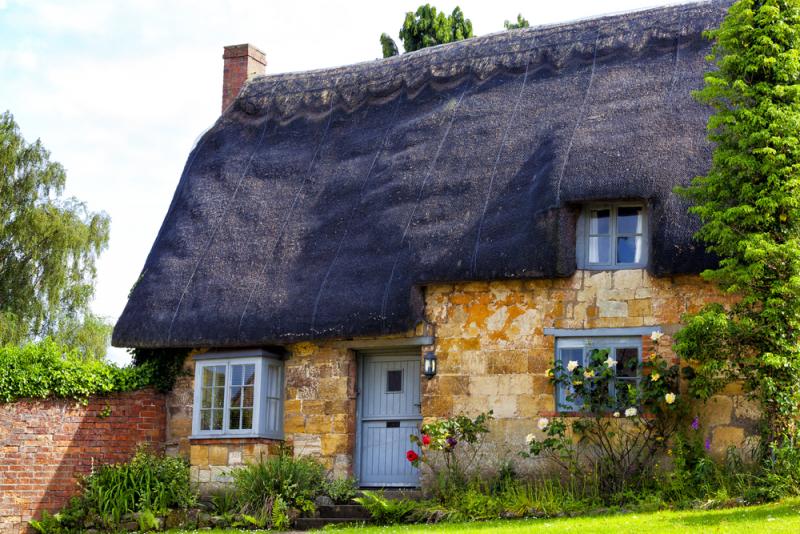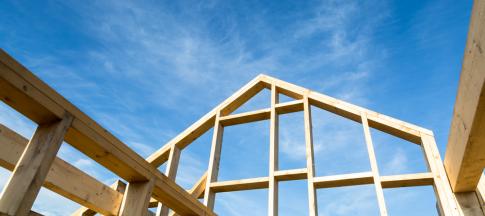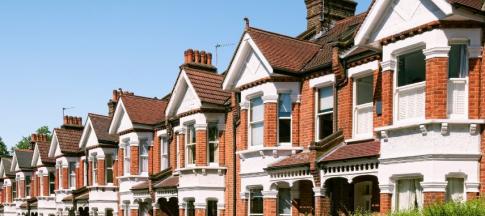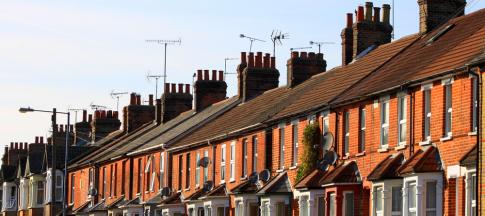
From common home repairs like plumbing mishaps to more serious incidents like a burglary, home insurance is there to protect your home and its contents.
If you’re lucky enough to live under a thatched roof, then you’ll already understand that while thatched homes are beautiful, they also come with special responsibilities and maintenance requirements.
For your peace of mind, it’s vital to make sure that you’ve got the right insurance to protect your home.
How is a thatched roof different?
Unlike concrete roofs, thatched roofs are made from completely natural materials and are created by traditional methods passed down throughout the centuries.
Thatching is made from thick layers of dry long wheat straw, reeds, heather, or other types of vegetation, in a shape that's unique to that structure.
Skilled thatchers maintain some of the UK’s oldest cottages and homes, and also provide new roofs for many property developers and homeowners who prefer this old roofing style.
Thatched roofs are both durable and sustainable. They're more expensive to build than standard concrete tiles, but when laid correctly and properly maintained, they can last up to 60 years.
What are the benefits of a thatched roof home?
There's lots of eco-friendly benefits of thatched roofs. They're made from natural, sustainable materials that are often locally sourced.
They also provide great insulation, allowing homes to retain heat in winter and stay cool in summer.
Specifications of the thatch can be altered to suit your needs, such as thicker layers of thatch for more warmth and longer durability.
And if you appreciate the quiet life, then you’re likely to enjoy a thatched roof’s ability to muffle the noise of the outside world better than concrete or slate can.
What should I do if I own a house with a thatched roof?
Thatched roofs will need more ongoing maintenance than a standard tile roof.
The perishable materials used are more susceptible to extreme weather, pollution, and general wear and tear, such as decay of the thatch. A general rule of thumb is the steeper the roof, the slower the decay.
When it comes to fire hazards, thatched homes are not necessarily any more at risk than those with concrete or slate roofs.
As with many houses, large fires in thatched homes are generally caused by electrical faults, overheated modern appliances, wood burners, and dirty chimneys or flues, rather than the thatch catching fire.
What to consider before getting a thatched roof
- Only work with experienced thatchers.
- Thatched roofs can also pose a fire risk due to the flammability of the materials so spray yours with a recommended fire retardant, like Thatchsayf.
- All chimneys to solid fuel fires/stoves must be lined and be professionally swept every year.
- You can also install other materials within your home that are designed to reduce the risk of fire or prevent the spread of a fire within the timber.
- Any trees directly overhanging the house should be trimmed back, as they can sometimes dry out the thatch, increasing fire risk.
- Your insurer may request your home contains at least two fire extinguishers, with at least one being in the kitchen. A fire blanket must also be installed in the kitchen.
Is home insurance more expensive for a thatched roof?
Due to the age of many thatched roofs, their potential maintenance costs, and the links to fire risks, some insurance companies charge a higher premium to cover them.
They may also charge a higher excess fee for home repairs, including the roof.
Some insurers will require you to have the electricity wiring inspected every three years by a contractor approved by the National Inspection Council of Electrical Installing Contracting (NICEIC) and have any faults sorted straight away.
You may also need to have the roof inspected by a thatcher or builder every five years, and any repairs carried out immediately.
It's worth seeking advice from professional thatchers, property experts and other thatched roof owners to suss out the best kind of home insurance for you.
Should I buy a house with a thatched roof?
Thatched homes will always be sought after for their aesthetic appeal and their links to our heritage.
Be aware that a lack of regulations for thatching can make it difficult to get a mortgage, but there are specialist financial companies who can advise you.


